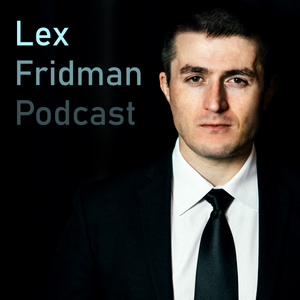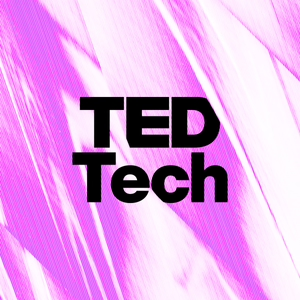
Episode 10: Exploration, Geoscience and Communities
07/07/20 • 54 min
Exploration and mining are human endeavors, relying on teams who work in the field and offices globally. The human factor in our work is also critical to establishing strong and meaningful relationships with local communities. So should those teams of professionals include social scientists, and what is the role of the exploration geologist? The answers are complicated, but this episode is packed with information. We talk to Monica Ospina from O-Trade and to Susan Joyce of On Common Ground to learn more about what impact exploration has on communities and where we can improve. We also explore what influences our practices, is it regulatory frameworks, investors, or the companies themselves?
Next we check in on a community engagement process – an open house held by Geoscience BC in a small town in British Columbia, Canada. The purpose of the meeting was to share the results and implications of a regional geophysical survey with people working and living on the north end of Vancouver Island. We went to the open house to see the process in action and hear from Richard Truman about why community engagement is important for a publicly funded research oriented organization.
Lastly, community is important for sharing science as well, so when as economic geologists we lost our ability to gather at conferences and seminars due to the pandemic, two early career scientists, Alannah Brett and Tom Belgrano, took action. A tweet and an email later, the Ore Deposits Hub – an online platform for seminars - was founded. Three months later they have established a diverse and inclusive community to share knowledge of ore deposits.
Theme music is Confluence by East Winds. www.eastwindsmusic.com
Exploration and mining are human endeavors, relying on teams who work in the field and offices globally. The human factor in our work is also critical to establishing strong and meaningful relationships with local communities. So should those teams of professionals include social scientists, and what is the role of the exploration geologist? The answers are complicated, but this episode is packed with information. We talk to Monica Ospina from O-Trade and to Susan Joyce of On Common Ground to learn more about what impact exploration has on communities and where we can improve. We also explore what influences our practices, is it regulatory frameworks, investors, or the companies themselves?
Next we check in on a community engagement process – an open house held by Geoscience BC in a small town in British Columbia, Canada. The purpose of the meeting was to share the results and implications of a regional geophysical survey with people working and living on the north end of Vancouver Island. We went to the open house to see the process in action and hear from Richard Truman about why community engagement is important for a publicly funded research oriented organization.
Lastly, community is important for sharing science as well, so when as economic geologists we lost our ability to gather at conferences and seminars due to the pandemic, two early career scientists, Alannah Brett and Tom Belgrano, took action. A tweet and an email later, the Ore Deposits Hub – an online platform for seminars - was founded. Three months later they have established a diverse and inclusive community to share knowledge of ore deposits.
Theme music is Confluence by East Winds. www.eastwindsmusic.com
Previous Episode

9. From AI To Water - Technology Tools for Gold Exploration
When it comes to gold, we’ve got a number of tools and methods available to help find ore deposits. But what techniques should we be using – and more importantly – how should we be using them?
Some of them are right on our desktops – from machine learning and artificial intelligence, to codifying geological knowledge. But these tools are only as powerful as the context they’re used in. Shawn Hood (GoldSpot Discoveries) shares best practices for applying computer science technology to geoscience, to make the best use of exploration data.
The other side of gold discovery is not the tools on our desktop – but the methods we have available in the field. And when it comes to the future of gold exploration, it may well be undercover. Does water hold the answers? Join Amanda Stolze (ALS Geochemistry) and James Buskard (Nevada Exploration) for a discussion on hydrogeochemistry, and how and why it should be used in gold exploration.
Our episode wraps up with a 5-minute interlude from Matt Leybourne (Associate Professor in Geochemistry, Queen's University). He shares common pitfalls and best practices for setting up a hydrogeochemistry program.
Theme music is Confluence by Eastwinds
eastwindsmusic.com
Come join us in Brisbane, Australia for SEG 2025, September 26-29th. This will be a dynamic conference with cutting edge science, new discoveries, technology and more. Opportunities for networking and learning include several workshops and field trips before and after the event, relaxed social events and of course the conference itself. See you there!
Next Episode

11. Geoscience Technology for a Better World
What should the relationship be between geoscience technology and the communities we’re a part of? The obvious answer is that geoscience technology should be used to enrich the lives of those in our communities.
But as Paul Bauman (Technical Director, Worley) says: often the question not asked, is where should the technology come from? Should we be using bottom-up or top-down approaches to develop tech? Paul shares his thoughts on this matter, and stories from his time pioneering geophysics use for humanitarian water crisis work in the 1990s.
Another question we should ask ourselves is how should we be sharing our technology and science with non-specialists? Alan Shapiro (Science Communication Consultant & Instructor) takes us through best practices for knowledge-based communication. This field becomes increasingly important as we look to a future with growing geoscience challenges, and will need to share our data to inspire new policies and lifestyle changes.
Lastly, what are the best approaches to inspire innovation in technology? Holly Bridgwater (Unearthed Solutions) takes us through ‘open innovation’ – and how communities can be leveraged for the future of geoscience tech.
Theme music is Confluence by Eastwinds
eastwindsmusic.com
Come join us in Brisbane, Australia for SEG 2025, September 26-29th. This will be a dynamic conference with cutting edge science, new discoveries, technology and more. Opportunities for networking and learning include several workshops and field trips before and after the event, relaxed social events and of course the conference itself. See you there!
If you like this episode you’ll love
Episode Comments
Generate a badge
Get a badge for your website that links back to this episode
<a href="https://goodpods.com/podcasts/discovery-to-recovery-85850/episode-10-exploration-geoscience-and-communities-4900291"> <img src="https://storage.googleapis.com/goodpods-images-bucket/badges/generic-badge-1.svg" alt="listen to episode 10: exploration, geoscience and communities on goodpods" style="width: 225px" /> </a>
Copy




